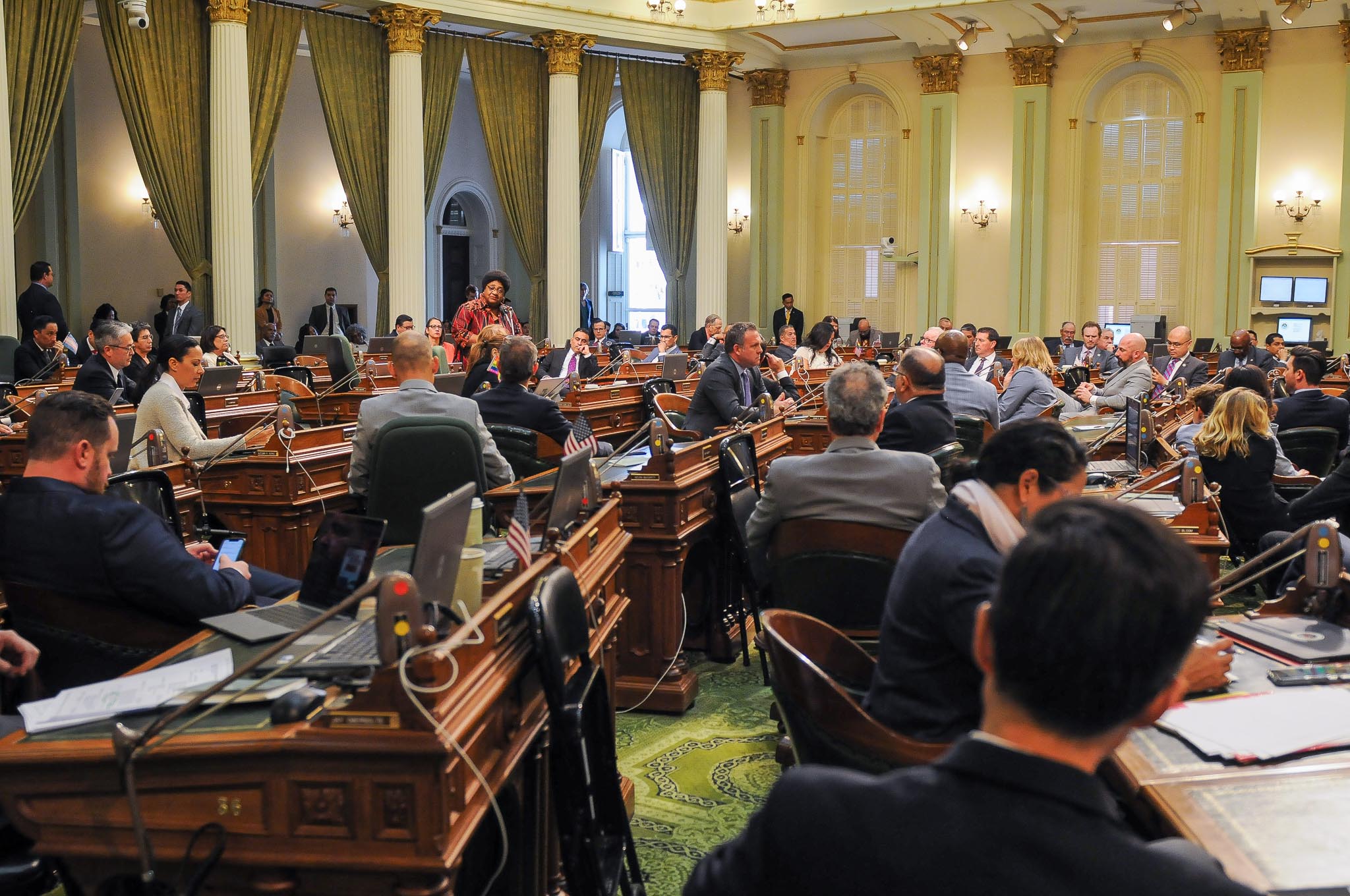
California Assembly. (Photo: Katy Grimes for California Globe)
Frequently Asked Questions about Differences in Legislative Floor Operations
When can a concurrence vote take place in the Assembly?
By Chris Micheli, June 25, 2024 4:00 am
How does each house of the Legislature handle “concurrence items”? For example, under Assembly Rule 77, concurrence in any Senate amendment to an Assembly Bill requires the same affirmative recorded vote as the vote required by the California Constitution for the passage of the bill.
When can a concurrence vote take place in the Assembly? The vote on concurrence may not be taken until the bill has been on the Unfinished Business File for one calendar day. This is referred to as the “one-day wait period” used when amended ABs return from the Senate. However, the one-day wait period does not apply the last two legislative days preceding the end of Session.
When can a concurrence vote take place in the Senate? Under Senate Rule 29, a Senate bill returned from the Assembly for concurrence in Assembly amendments may not be considered until the measure appears under Unfinished Business on the Senate Daily File and an analysis is provided to each Senator. But SR 29 does not include a one-day wait period.
How does the Assembly handle Floor amendments? The Assembly is required to submit amendments the night before Friday’s deadline (i.e., Thursday evening). That deadline is usually 5pm, but the Assembly Desk sometimes remains open later in order to process the submitted amendments which also had to be returned by the Office of Legislative Counsel. Then, on Friday, the floor manager of the Senate Bill being amended stands up on the Floor and presents the proposed amendments and sought approval for those amendments. Approval can be made with either unanimous consent of the Members, or by a roll call vote, which can be requested by any Member. In that case, the bill is amended by a majority of those present and voting. In the Assembly, a bill amended on Third Reading remains to the Third Reading File.
Hoes does the Senate handle Floor amendments? The Senate does not present amendments on the Floor, nor does it vote to adopt amendments, but amended bills return to the Second Reading File. Amendments to ABs are simply processed by the Senate Desk. As a result, amendments to Assembly Bills are made until the Senate Desk is closed Friday evening. The amendments must include an analysis prepared by the relevant policy committee in order for the Desk staff to process the amendments to the AB. In the Senate, a bill amended on Third Reading is placed on the Second Reading File and the following day the bill returns to the Third Reading File.
What is the “batching” process used on the Assembly Floor? This is a process that, once unanimous consent is received on the Floor, permits a single vote for multiple bills or amendments to be adopted. It is used occasionally where both the Democratic and Republican Caucuses have a “support” recommendation and there have not been any Republican legislators who abstained or voted “no” in committee on the measure. “Batching” is similar to the Senate’s “Special Consent Calendar” which is used when there are bills that have “support” recommendations by both the Democratic and Republican Caucuses. The Senate’s “Special Consent Calendar” is different than its “Consent Calendar.”
Can business be conducted on the Senate and Assembly Floors past midnight on the last day of session in an odd-numbered year? The question always arises at the end of Session when the clock gets close to midnight: Can the Legislature go past midnight and continue its work? During the odd-numbered year, the date of adjournment is set by the Joint Rules of the Assembly and Senate (see Joint Rule 61(a)(14)). And, as we know, the Joint Rules can be suspended by the two houses, if necessary
Can business be conducted on the Senate and Assembly Floors past midnight on the last day of session in an even-numbered year? Tn the even-numbered year, that question is clearly answered by the California Constitution. Pursuant to Article IV, Section 10(c), the Legislature must conclude their work by midnight on August 31, except if they consider several types of bills that can be acted upon past that deadline.
- Trial for Partition of Property in California - February 16, 2026
- Incidental Takes - February 16, 2026
- Fish and Game Districts in California - February 15, 2026



